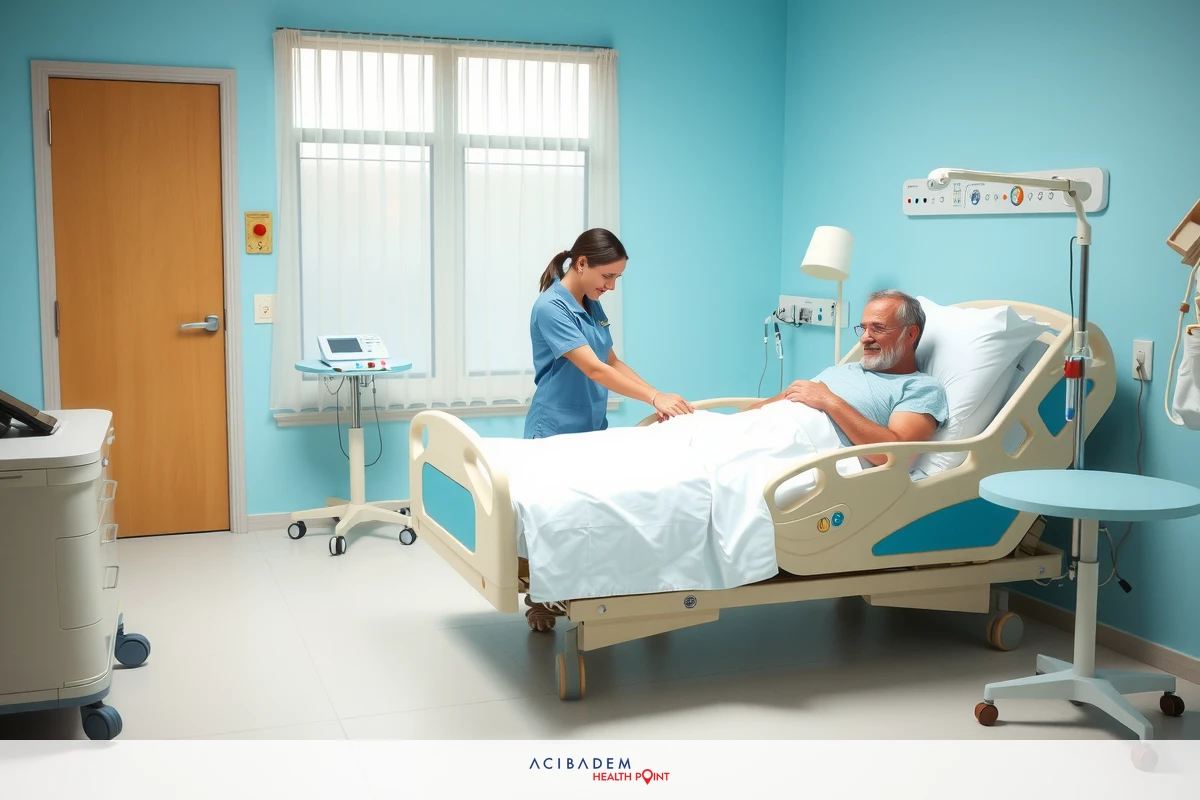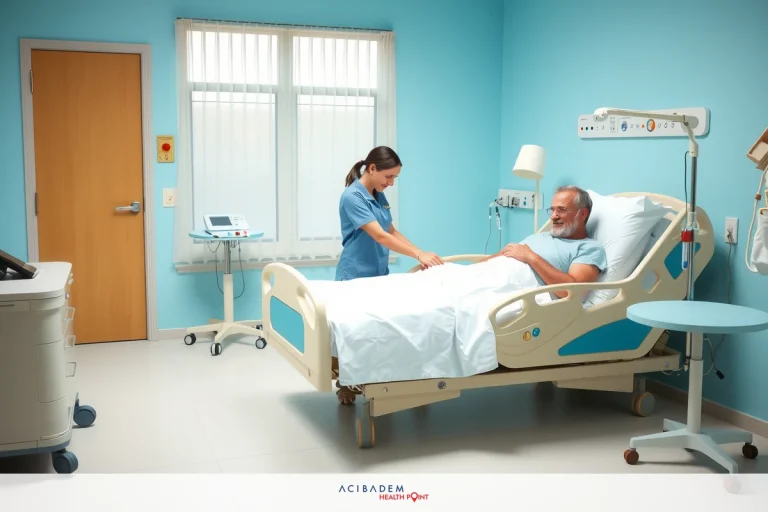Hip Arthroplasty Revision Recovery
Hip Arthroplasty Revision Recovery Recovery from hip arthroplasty revision can be a smooth road if you know what steps to take. The key is in the preparation before surgery and the care that follows after. It’s all about knowing how your days will unfold as you heal. With good support, clear advice, and strong focus on your wellbeing, getting back on your feet can become less daunting.
Once the surgery is done it’s time for rest and healing. Your body has gone through a lot so giving it the right environment to recover is vital. Think of your recovery space like a cozy nest—peaceful, comfy, and with everything you need close by. Day by day, with patience and care, progress comes.
During this period of getting better pain management is important too. You want to keep discomfort low while being careful not to overdo things. Follow doctor’s orders closely but also listen to what your body tells you—it knows best! And remember: every step forward brings you closer to where life feels normal again.
Preparing for Surgery
Before your hip arthroplasty revision it’s smart to plan ahead. Make sure you have someone to help at home because your movement will be limited. Find a spot in your living space where you can rest without having to climb stairs. Gather items you use every day and put them within easy reach. This prep work makes life simpler after surgery.
It’s also key to follow any pre-surgery tips from your doctor or nurse. They might ask you to stop certain meds or change what you eat and drink. Arrange a ride home from the hospital since driving won’t be on the cards for a while. If possible cook some meals before and freeze them—it will save effort when you’re back.
Exercise can play a big part in getting ready too—but only safe gentle kinds that suit your current state. Your health team may suggest specific exercises that strengthen muscles around the hip joint. Doing these can boost recovery speed after hip replacement surgery—and who doesn’t want that?
Lastly think about rehab plans early on so there are no surprises later down the road. Check with both insurance company and rehabilitation center on how they’ll support your journey back to health post surgery—a little homework now pays off later! Remember: Good preparation leads to smoother recovery after hip arthroplasty revision.
Post-Surgery Care
After hip arthroplasty revision it’s crucial to give your body the rest it needs. The first few days are for staying still and letting the healing begin. Use ice packs to ease swelling and keep pain at bay. Keep your leg raised as this helps with blood flow. Your care team will show how best to sit or lie down.
As you get stronger start walking short distances. You might use crutches or a walker at first and that’s okay—it’s part of the process. Each step is progress even if they’re small ones at the start. Listen closely when health experts teach you how to move safely without harming your new hip.
Rehabilitation exercises come into play soon after surgery too—they’re like gold for recovery! These aren’t just any movements; they’re designed specially for people who’ve had a hip replacement done. Do them regularly but don’t push too hard—balance is key here.
Stick strictly to recovery tips from doctors because each piece of advice has its purpose in getting you well again quickly and safely after hip arthroplasty revision surgery. Remember that taking meds on time is
important too—it keeps pain levels low so you can focus on getting better day by day.
Managing Pain and Discomfort
After hip arthroplasty revision feeling some pain is normal. Your doctor will give you meds to help with this. It’s important to take them as told not just when pain feels bad. Some drugs are for stopping swelling; others keep pain away before it starts. Make sure to talk about any side effects so they can find the best option for you.
You can also use things like ice or heat on your hip—but ask the care team first. They know what works well with your type of surgery. Small moves throughout the day keep your joint from getting stiff which helps a lot too. And don’t forget, rest is a big part of healing—when your body says slow down, listen.
Lastly remember that each person’s recovery is different after hip replacement surgery. What works great for one may not be right for another so stay in touch with health pros about how you feel during rehab—they’re there to guide you through every step and tweak things if needed!
Physical Therapy and Rehabilitation
Physical therapy is a cornerstone of your recovery journey after hip arthroplasty revision. It begins soon after surgery with simple tasks to get you moving safely. Your therapist will create a plan that’s just for you focusing on improving joint motion and strength gradually. They’ll watch how you do things to make sure each movement helps healing without harm.
Each session in physical therapy builds on the last one pushing toward more complex goals as you grow stronger. You’ll start with gentle stretches that slowly wake up muscles around your new hip joint. Next come strengthening exercises designed to rebuild what was lost during your time away from being active due to pain or injury.
Your therapist knows when it’s right for you to try harder movements or add weight for extra challenge. They adjust the rehab routine regularly based on how well you’re doing—this keeps progress steady without setbacks from doing too much at once.
At home there are homework exercises too; these daily moves keep up momentum between visits to the clinic. It’s important not only do them but also report back any issues or breakthroughs during sessions so adjustments can be made quickly if needed.
Rehabilitation supports every other part of getting better—like making pain less severe and helping with day to-day tasks once hard because of surgery aftermaths. It takes time and effort but stick with it—the gains are worth every stretch, bend, and step forward!

Hip Arthroplasty Revision Recovery: Returning to Daily Activities
Getting back to your normal life after hip arthroplasty revision takes time and care. At first daily tasks will seem harder than before. It’s okay; this is part of the healing journey. Your body needs a chance to adjust to the changes from surgery. Start small with activities like dressing or sitting down and standing up.
As you heal you’ll slowly take on more around the house. Simple chores like washing dishes can boost your mood and strength. But remember balance is key—don’t rush things too much at once. Listen well to what your health team suggests for tasks that are safe for you right now.
One big goal in recovery is getting back independence safely. This means not relying on others for every little thing anymore. To get there practice moving around home with ease first before heading out into the world again.
You might wonder when it’s fine to go back work or drive again—that depends on how fast your body mends itself and gets stronger each day after surgery. Always check with doctors about these bigger steps so they can tell if it’s safe based on their knowledge of your case.
In time hobbies and sports come back into play too! Just make sure any activity fits well within rehab rules set by therapists who know best about keeping joints healthy post-surgery—it ensures everything heals as it should during recovery from hip replacement surgery.
Hip Arthroplasty Revision Recovery: Frequently Asked Questions
How long does recovery from hip arthroplasty revision typically take?
Recovery time varies for each person but it usually takes several months to feel fully better. Your surgeon will provide a more specific timeline based on your situation.
When can I start driving after my surgery?
It's best to wait until you're off strong pain meds and can move without discomfort. This might be several weeks post-surgery; your doctor will give the okay when it’s safe.
Are there any activities I should avoid during recovery?
Yes high-impact activities like running or jumping should be avoided at first. Stick to gentle exercises and follow your physical therapist’s guidance on what’s safe.
Please note these answers are for informational purposes only and do not constitute medical advice.








